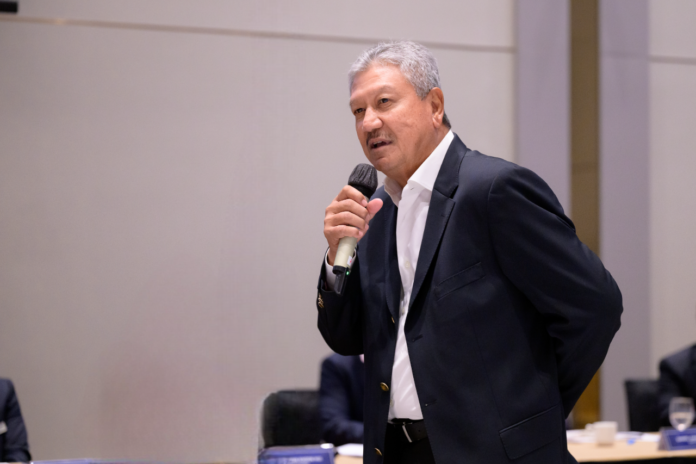What led to you becoming the Legal Counsel for the Society in 1989?
I first connected with NUSS in 1977 during my inaugural year at Law School, where the Evans Road Guild House provided a welcoming environment. This camaraderie influenced my decision to join NUSS upon graduating in 1981, facilitated by an instalment scheme for the $50 monthly entrance fee.
In 1988, under Mr Anwarul Haque’s leadership, NUSS aimed to restore order amidst internal strife. Recognising my ability to handle complex challenges, he invited me to serve as the Society’s Legal Counsel. His rationale was to enlist a “rascal” capable of countering others while fostering unity for the Society’s betterment.
Can you share any memories of your early days with the Society?
Upon becoming active, I discovered a strong bond among members, particularly those from the legal profession, which felt like a natural fit for me. The mid-1980s brought significant sociopolitical changes in Singapore, prompting NUSS to engage vigorously with constitutional objectives, focusing on political discourse, local issues, and broader societal concerns pivotal to nation-building.
At our General Meetings, the Chairman contended with spirited challenges from the floor, scrutinising every detail in the Annual Report. Points of Order and motions to amend frequently prolonged meetings into the early hours, prompting the institution of a motion to provide supper—a testament to the intensity of our deliberations. Despite the robust exchanges, these interactions were characterised by civility and respect, reflecting our commitment to democratic processes.
What were some of the most notable projects you have helped with during your tenure?
One standout project was the ambitious bid for the former Pinetree Club, which was put up for auction by liquidators through a public tender. NUSS, as an interested party, sought members’ approval for the $100 bid. The process faced rigorous scrutiny and sparked passionate debate among members. Despite narrowly missing approval, the experience underscored NUSS’ commitment to transparency and member involvement. Such engagements have solidified my belief in NUSS’ exemplary governance and the collective spirit of service among its members.
What has been the most rewarding aspect of being the Society’s Legal Counsel?
The most rewarding aspect of being the Society’s Legal Counsel has been witnessing the evolution of NUSS into a model of democratic governance and inclusive dialogue. Unlike other forums where dissent is met with disdain, NUSS promotes a culture of respect for diverse perspectives—an ethos that defines our community and fosters mutual respect among members.
What are your hopes for the future of the Society?
As I pass the baton to a new generation of leaders, I remain optimistic about NUSS’ future trajectory, anchored in its values of integrity, inclusivity, and steadfast service to the community. I believe NUSS will continue to thrive as a beacon of democratic principles and civic engagement.
What were the principles that guided your advice to NUSS?
My philosophy, inspired by R.E. Renton’s “Guide for Meetings,” emphasises the importance of organisation and efficiency. “If an organisation has a meeting, then the meeting should have organisation. A meeting should never be an event at which minutes are kept while hours are lost.” This mantra has guided my conduct at NUSS General Meetings and in my broader professional life.
Additionally, Mahatma Gandhi’s famous words, “Be the change that you wish to see in the world,” have been a guiding principle in my approach to both NUSS and life. This principle emphasises personal responsibility and the power of individual action to drive collective improvement.
Do you have any advice you’d like to share with the younger generation?
I advise the younger generation to embrace a spirit of service and commitment to the community. Engage actively in democratic processes and respect diverse viewpoints. Remember, leadership is about serving others and contributing to the common good.
Do you have any other insights or suggestions you’d like to share?
It has been an honour to serve under the guidance of past Presidents, contributing to NUSS’ legacy of excellence. I encourage future leaders to continue fostering a culture of respect, transparency, and active participation, ensuring NUSS remains a vibrant and inclusive community for all its members.







